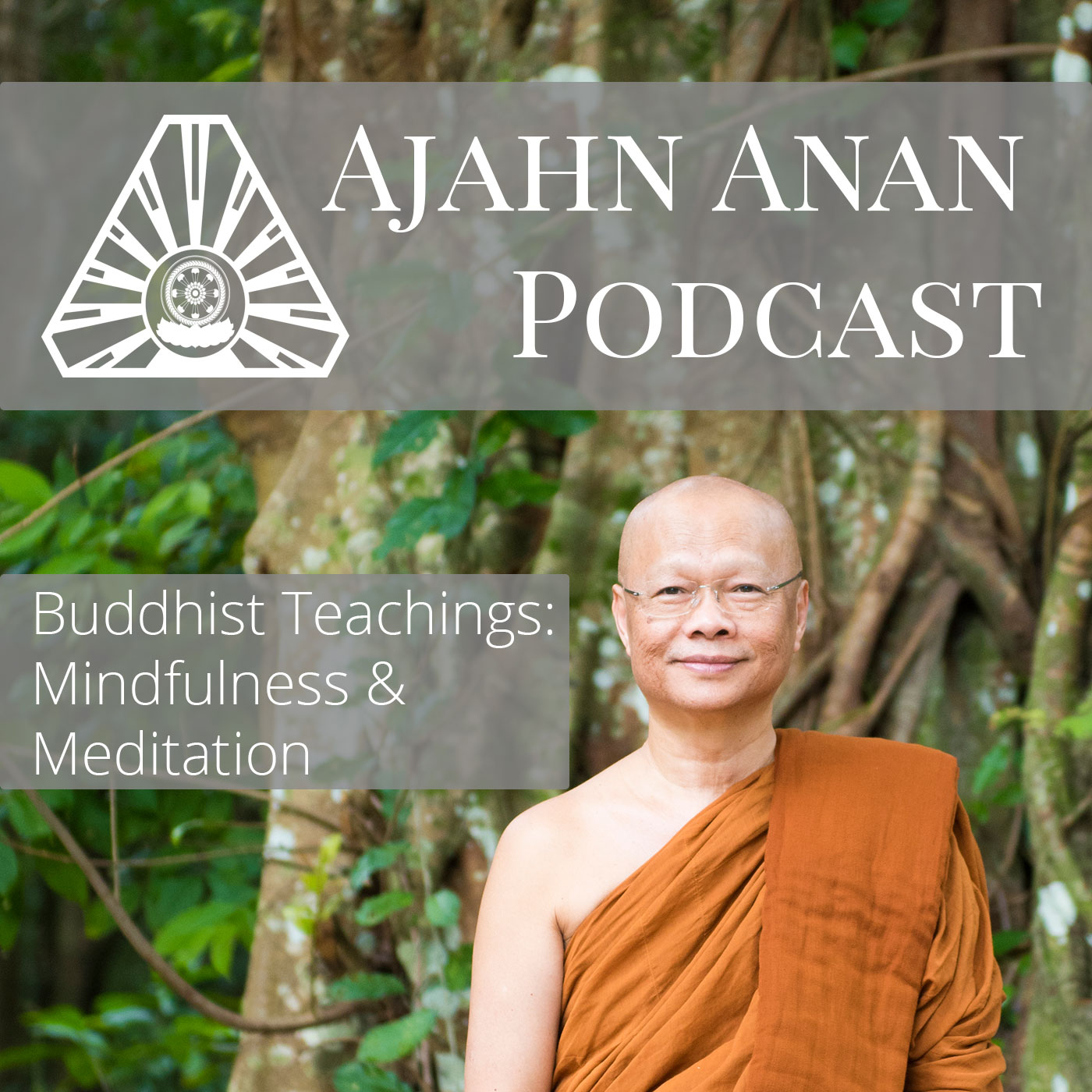
In the beginning, the minds of most beings are weighed down by the defilements. But as we progress along this path of generosity, virtue and meditation, they grow lighter, and are able to rise up to higher and higher levels.
To listen to most recent talks, you can visit our YouTube page: https://www.youtube.com/ajahnanan
To join Ajahn Anan and the Wat Marp Jan Community online for daily chanting, meditation, and a Dhamma talk, you can email wmjdhamma@gmail.com for the link. Every day 7-9 p.m. Indochina Time (Bangkok, GMT + 7).

In this talk, Ajahn Anan tells us how to make our mindfulness like a spider waiting in the middle of its web. He then goes on to teach how we don’t need to concern ourselves with developing deep levels of samādhi, or seeing visions; we just need to straighten out our views.
To listen to most recent talks, you can visit our YouTube page: https://www.youtube.com/ajahnanan
To join Ajahn Anan and the Wat Marp Jan Community online for daily chanting, meditation, and a Dhamma talk, you can email wmjdhamma@gmail.com for the link. Every day 7-9 p.m. Indochina Time (Bangkok, GMT + 7).

In the many years since Luang Pu Chah’s passing in 1992, this is the first year Ajahn Anan has not been to his Memorial Day gathering at Wat Nong Pa Pong due to the pandemic. He gave this talk at Wat Marp Jan on how Luang Pu Chah is still with us in his teachings. If we have deep respect for him, we should practice what he taught until we reap their liberating results.

During this time of pandemic, it’s important that we look after our bodies so they stay strong enough to fight off illness. It’s also the same for our minds—we need to use mindfulness and samādhi to forge inner strength. And when the mind is strong, it’s able to ward off suffering.

Ajahn Anan relates the story of how Nāgasena’s father developed faith in Buddhism, and how Nāgasena in turn used his great wisdom to inspire King Milinda to become a devout Buddhist.
To listen to most recent talks, you can visit our YouTube page: https://www.youtube.com/ajahnanan
To join Ajahn Anan and the Wat Marp Jan Community online for daily chanting, meditation, and a Dhamma talk, you can email wmjdhamma@gmail.com for the link. Every day 7-9 p.m. Indochina Time (Bangkok, GMT + 7).

In this videoconference talk from 22 January 2021, Ajahn Anan talks about equanimity, evenness of mind.

Ajahn Anan talks about what it is that covers over the body’s qualities of inconstancy, pain and not-self. He then gives a detailed description of the many ways we can see the unattractive nature of these bodies.
To listen to most recent talks, you can visit our YouTube page: https://www.youtube.com/ajahnanan
To join Ajahn Anan and the Wat Marp Jan Community online for daily chanting, meditation, and a Dhamma talk, you can email wmjdhamma@gmail.com for the link. Every day 7-9 p.m. Indochina Time (Bangkok, GMT + 7).

For us living in the highly competitive, self-centered societies that we do, it’s natural that we’ll feel jealous sometimes when others gain success. This can feel like an inner fire, and is something we need to be cautious of. We can combat this unskillful emotion by cultivating sympathetic joy—thoughts and feelings of finding happiness in the gains and achievements of others.

A talk given to a lay group from Bangkok who frequently visit forest monasteries throughout Thailand to give offerings and listen to the Dhamma.
To listen to most recent talks, you can visit our YouTube page: https://www.youtube.com/ajahnanan
To join Ajahn Anan and the Wat Marp Jan Community online for daily chanting, meditation, and a Dhamma talk, you can email wmjdhamma@gmail.com for the link. Every day 7-9 p.m. Indochina Time (Bangkok, GMT + 7).

Even though we may be experiencing restrictions in certain areas of our lives, it’s still very possible to cultivate merit during lockdown. In this talk, Ajahn Anan tells us of some of the ways that we can do this.
